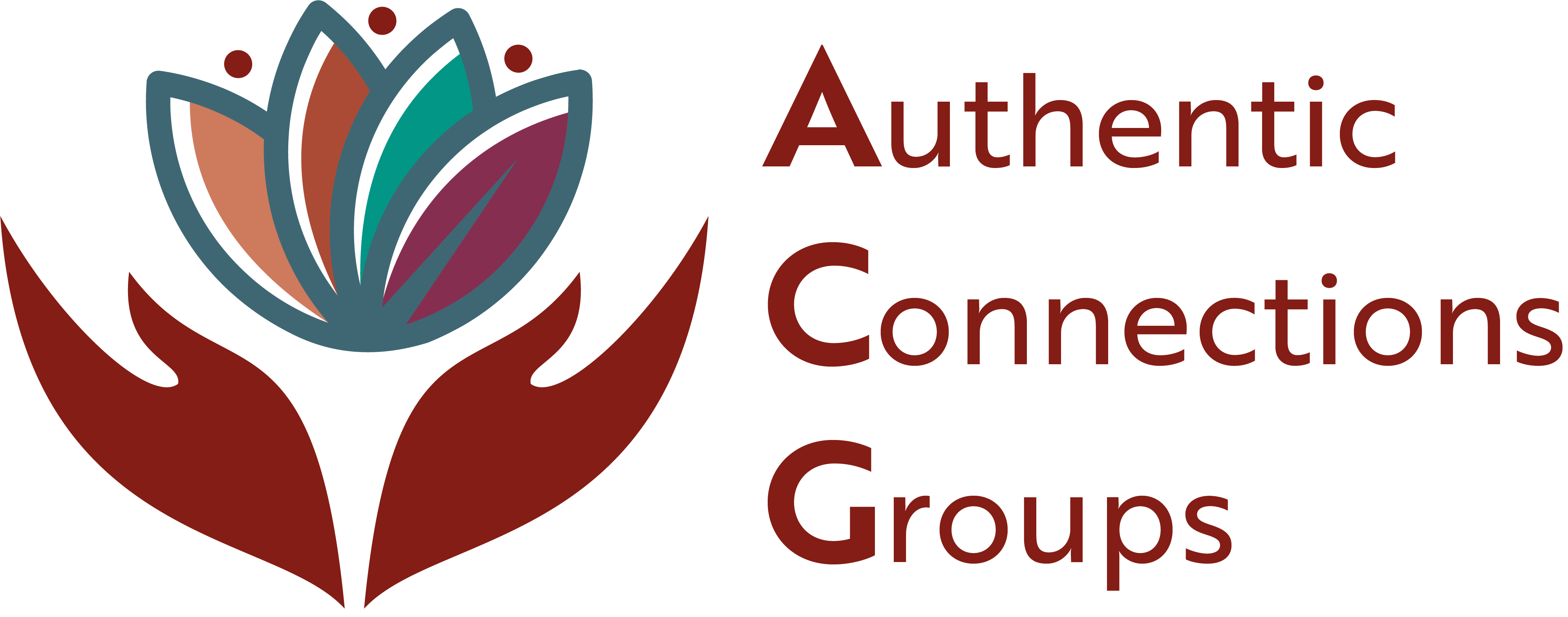Who are these groups for? Are they right for me?
Authentic Connections (AC) Groups are for everybody seeking to build strong, dependable support systems that last over time, and can buffer them through times of adversity or stress! This said, we’ve found that groups are especially well-suited for folks who help or take care of others at home or work. They teach new coping and relationship-building skills that participants can pass on to those they support while ensuring that they are replenished themselves on an ongoing basis.
What happens during group sessions? What does the facilitator do?
Trained, experienced facilitators (who receive ongoing supervision) bring significant warmth, empathy, and genuine caring to each meeting. They deliberately foster participants’ authentic connections within and outside group, while leading focused discussions on the topic of the day. After each session, they send participants a handout that summarizes major themes covered and specific skills learned (which they can then share with others in their own lives).
Will I have to share deep, personal information on all topics?
No. All group members are supported and encouraged to share on the different topics — but ALWAYS to their own comfort levels. If discussions on a particular issue feel too sensitive or painful, a group member may certainly “pass” for that topic.
How do AC Groups differ from psychotherapy?
Psychotherapies focus on reducing mental health problems that cause significant distress, often by delving into difficulties in clients’ past and present lives. AC Groups have a specific, preassigned topic for each week, as laid out in a scientifically validated manual. All 12 session topics focus on important dimensions of positive coping and steps toward strengthening close relationships, both within the group and outside.
How do institutions organize and use AC Groups?
Many institutions offer AC Groups as part of their science-based wellness programming. In initial groups, leaders often invite participants who are widely seen as “pillars of mental health” in their own community. Often times, this first set of participants includes several folks who have the aptitude and ability to run groups themselves, thus spreading beneficial “ripple effects” for the organization’s climate.
What if I don't have the time to do this?
Some folks might feel they don’t have the time to attend one hour AC Groups for 12 weeks. However, it’s worth noting that since AC Groups began in 2014, everybody who’s been through the program not only made the time to attend regularly but completed all of it. They often spoke of the program as “life changing” — benefiting themselves greatly as well as those closest to them — and wished they had still more sessions ahead!
What are some of the AC Group session topics?
Some examples of topics are Minimizing rumination; Contagion of others’ pain; Obstacles to connecting authentically; Shame versus self-compassion; Limits and boundaries in close relationships.
How do AC Groups differ from coaching or general professional development?
Coaching and professional development activities are generally geared towards improving one’s performance in particular career or life goals. AC Groups aim are at forming reliable, loving safety net of supports that people can draw on in celebrating positive life events, and to receive comfort and support during difficult times. At the foundation of AC Groups is scientific knowledge that resilience rests, fundamentally, on relationships.
What about confidentiality?
At the very start of the AC Groups program, all participants commit to maintaining strict confidentiality. They are certainly allowed to talk about what is discussed in a particular session but may not disclose other group members’ names at any time. Also, when groups are conducted within schools or other organizations, discussion of any colleagues by name is strictly off the table.

